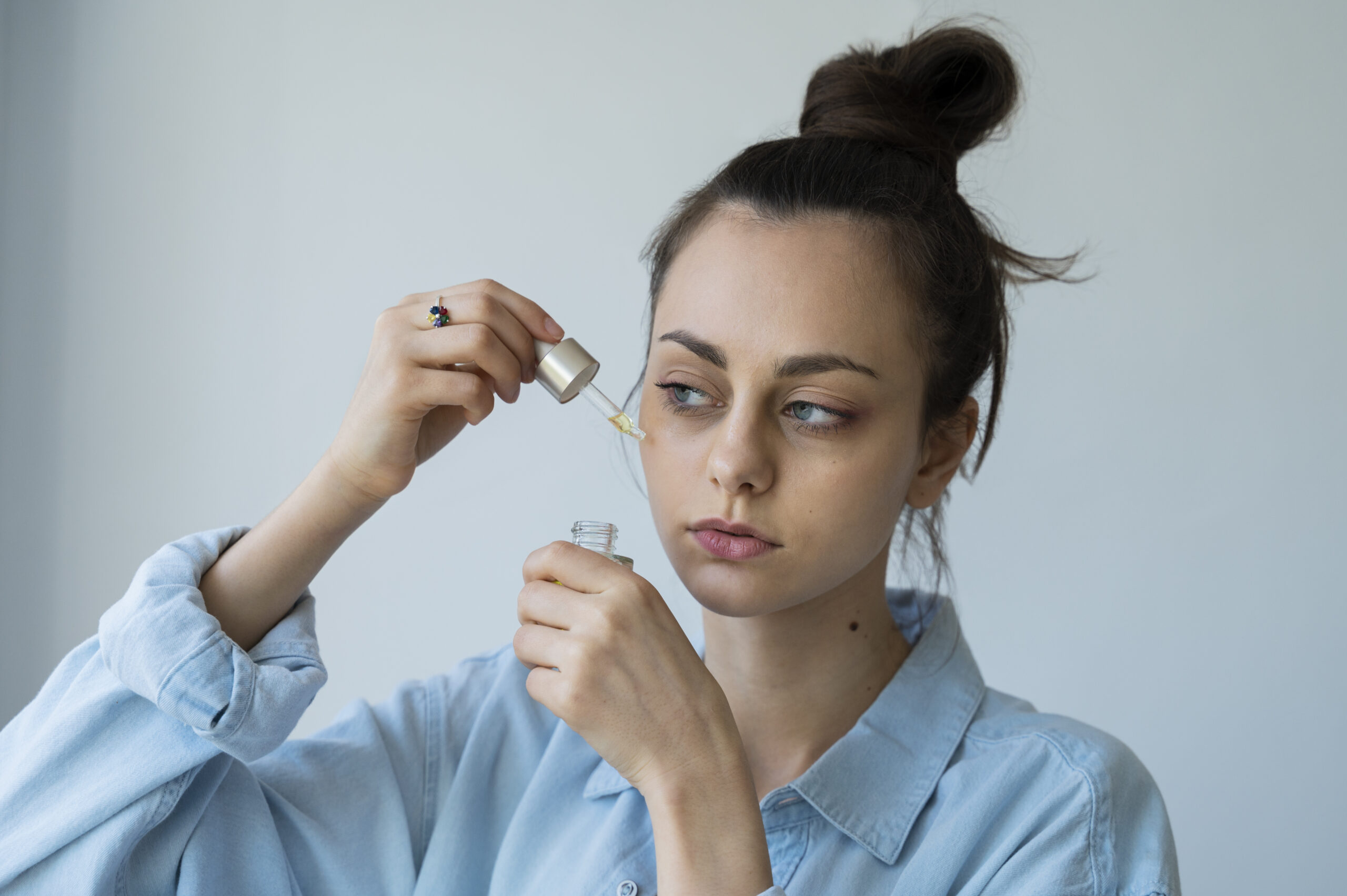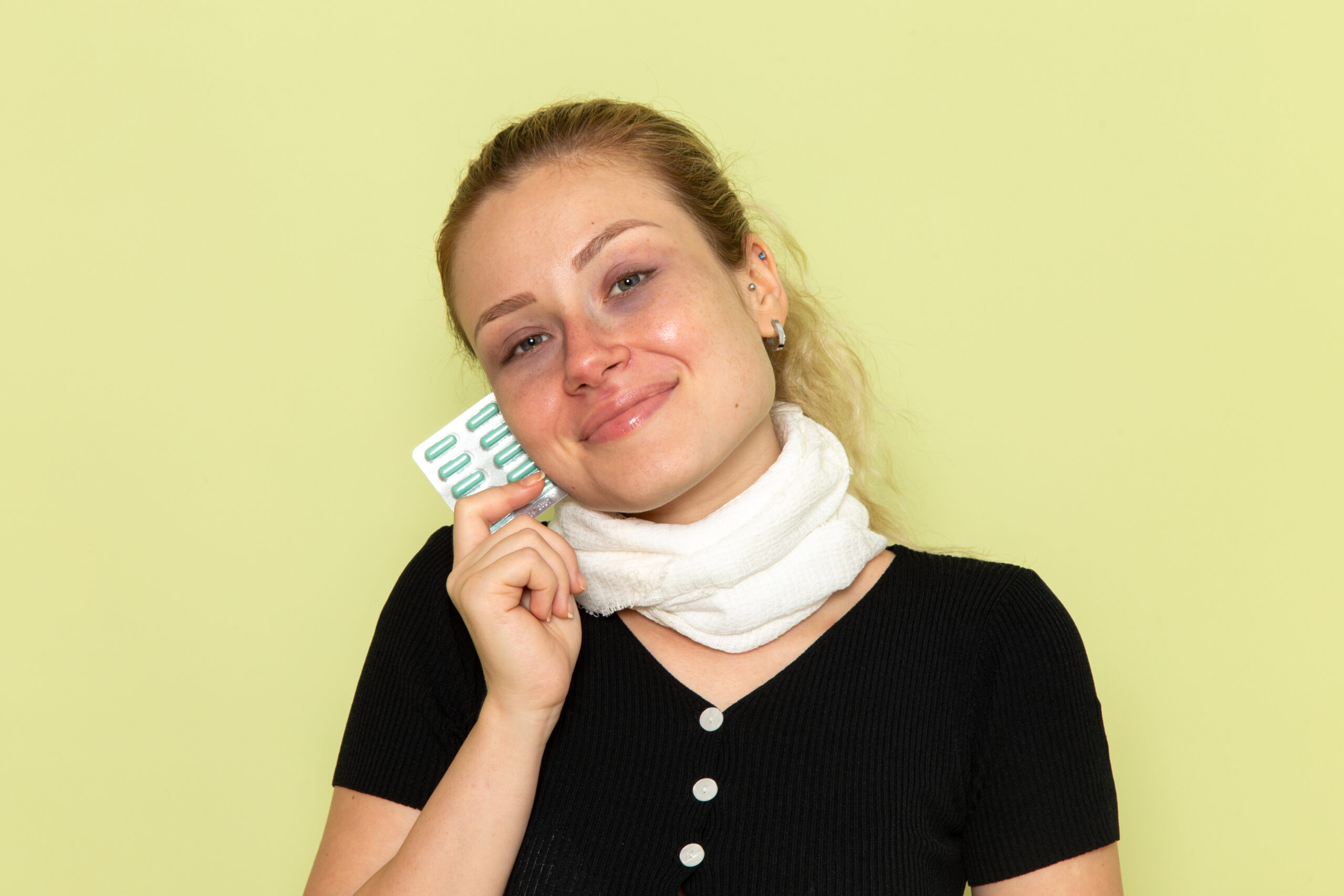Back To Top
Browse
Rosacea is a chronic skin condition characterised by redness, inflammation and flushing. It’s sometimes referred to as Rosacea acne, however it does not have the characteristic blackheads or infected nodules that are symptomatic for acne.
Rosacea cannot be cured with however products and medications used to treat rosacea can be used to manage symptoms and reduce flare ups.
Check out our full catalogue Medications to treat Rosacea including anti-inflammatory pills and gels and antibiotics. You can purchase the correct Over the Counter (OTC) or prescription medication and have it delivered to your home address in the next 24 hours.
Rosacea is a condition causing reddening and sensitivity of the skin. There can be flushing as well and sometimes visible thread like blood vessels in the areas of the cheeks, forehead, nose and chin.
There can also be some small red/inflamed papules which can become inflamed and pustular in severe cases.
Rosacea is different from acne and has different types of treatment.
Rosacea symptoms are brought on by triggers such as stress, heat, spicy food and alcohol unlike acne, rosacea also does not have the blackheads or infected nodules characteristic of acne.

There are no cures for rosacea, however there are treatment options for the symptoms which include:
Symptoms of rosacea fluctuate depending on the subtype of rosacea and they often fluctuate between flare-ups and remission.
Common symptoms of rosacea include:
Treating acne and rosacea often involves a combination of oral and topical medications:
Finding the right balance between oral and topical treatments can significantly improve skin health.
For treating acne, a combination of medications is needed to reduce symptoms and flare ups such as redness, inflammation and acne-like breakouts.
Topical treatments can be used to manage the redness and pimples associated with acne and rosacea such as:
Oral antibiotics can be used in moderate to severe rosacea cases and can reduce the number of pustules in rosacea or the level of inflammation. Oral medications for rosacea include:
For those suffering from severe acne or combined acne and rosacea symptoms, advanced medications are available:
Consulting with a specialist ensures the right treatment plan tailored to your needs.
We offer both OTC creams and oral medication for acne treatment depending on the severity of your symptoms.
Choose OTC if you have:
Choose prescription products if you:
Our team can help you determine whether a rosacea medication cream or a systemic approach will work best.
You can buy rosacea medications and medications for acne treatment, safely, reliably and easily at Med For Less and have them delivered to your home address in the next 24 hours.
The best medicine for rosacea varies depending on the type and severity of the symptoms. Treatment options are often tailored to a particular individual and their symptoms and can involve a combination of:
Please consult with your dermatologist on what would be the best medicine for your individual rosacea symptoms.
Clearing rosacea can be challenging as it is a chronic skin condition and requires time to manage rather than a quick one time fix. However there are medications to treat rosacea that can be used for rapid relief from specific symptoms such as redness, inflammation and the visible thread like blood vessels under the skin.
Topical vasoconstrictors such as Brimonidine gel (Mirvaso) or Oxymetazoline cream (Rhofade) can be used for quick redness relief, working within 30 minutes to a few hours and providing relief for up to 12 hours. These medications can be used successfully in the treatment of rosacea flare ups whereas the other anti-inflammatory and low dose antibiotics can be used to manage the condition long term.
Dermatologists usually recommend a combination of oral and topical treatments, lifestyle adjustments and sometimes advanced procedures to manage rosacea. The choice of treatments depends on the type and severity of rosacea.
The exact root cause of rosacea is unknown but the main causes are a combination of genetic, environmental, immune system alterations and microbial factors.
People with a family history of Rosacea are more likely to develop the condition, although it can affect people from any background.
Abnormalities of blood vessels such as dysfunction or abnormal dilation which can lead to flushing, redness and visible blood vessels under the skin.
An overreactive innate immune system with a particular increase in the activity of one protein called cathelicidin which normally helps fight off infection but causes the inflammation, redness and swelling in rosacea due to its overactivity.
Triggers such as spicy food, alcohol, extremes of temperature, hot drinks and exercise can also be causes for Rosacea flare-ups.
While there is no proven link between a vitamin deficiency and rosacea onset, the deficiencies of certain vitamins can excarbate rosacea symptoms. These important vitamins are:
Please speak to your healthcare provider about your Vitamin and mineral supplementation and how that might be impacting your rosacea supplementation.
Yes. Many patients have overlapping symptoms. A combination of oral medications for acne and topical rosacea medications—such as metronidazole or azelaic acid—can target both conditions effectively. Always follow your clinician’s tailored plan.
Most oral medication for rosacea, like doxycycline, begins to show improvement within 2 to 4 weeks. Maximum results are typically seen after 8–12 weeks of consistent use.
Not usually. While acne medication cream is helpful for mild-to-moderate cases, oral medication for acne treatment is generally required for widespread or persistent breakouts. Speak to a provider to determine what’s best for your skin.
Yes. Topical vasoconstrictors like Mirvaso can reduce facial redness temporarily. For more lasting control, oral medication for rosacea or laser treatments may be recommended alongside lifestyle management.
| Cookie | Duration | Description |
|---|---|---|
| cookielawinfo-checkbox-analytics | 11 months | This cookie is set by GDPR Cookie Consent plugin. The cookie is used to store the user consent for the cookies in the category "Analytics". |
| cookielawinfo-checkbox-functional | 11 months | The cookie is set by GDPR cookie consent to record the user consent for the cookies in the category "Functional". |
| cookielawinfo-checkbox-necessary | 11 months | This cookie is set by GDPR Cookie Consent plugin. The cookies is used to store the user consent for the cookies in the category "Necessary". |
| cookielawinfo-checkbox-others | 11 months | This cookie is set by GDPR Cookie Consent plugin. The cookie is used to store the user consent for the cookies in the category "Other. |
| cookielawinfo-checkbox-performance | 11 months | This cookie is set by GDPR Cookie Consent plugin. The cookie is used to store the user consent for the cookies in the category "Performance". |
| viewed_cookie_policy | 11 months | The cookie is set by the GDPR Cookie Consent plugin and is used to store whether or not user has consented to the use of cookies. It does not store any personal data. |